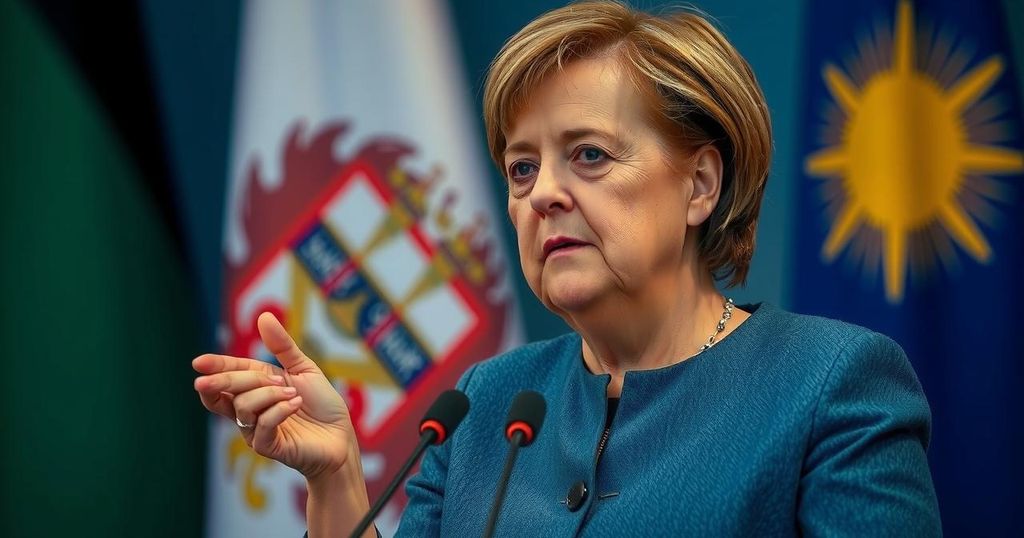Merkel Defends Her Leadership in New Memoir Amid Contemporary Challenges
Angela Merkel reflects on her 16 years as Chancellor in her memoir “Freedom,” defending her policies on the refugee crisis and relations with Russia amid ongoing global turmoil. She addresses criticisms regarding her perceived leniency towards asylum seekers and energy dependency on Russia, asserting her belief in humanitarian principles and diplomatic engagement.
Angela Merkel, the former Chancellor of Germany, presents a robust defense of her sixteen-year tenure in her memoir, “Freedom: Memories 1954 – 2021.” Released in thirty languages, the book addresses criticisms regarding her management of the refugee crisis and relations with Russia, amidst ongoing global conflicts. Merkel asserts that she harbors no regrets, reflecting on her leadership style and the decisions that have shaped Germany’s recent history, particularly during significant events like the 2015 refugee influx and Russia’s actions against Ukraine.
In her autobiography, Merkel articulates her perspective on the challenges she confronted, including accusations of enabling a far-right resurgence through her open-door policy for asylum seekers. She argues that her commitment to humanitarian principles was paramount, despite the political fallout it generated. Regarding her engagement with Russian President Vladimir Putin, Merkel defends maintaining dialogue to manage bilateral relations, emphasizing the strategic importance of Russia as a major global power. The legacy of her decisions, especially concerning energy dependency, is scrutinized in light of Germany’s current economic challenges following the war in Ukraine.
The article centers on the reflections of Angela Merkel as she launches her memoir, highlighting her dual roles in managing the refugee crisis and fostering relations with Russia during her chancellorship. The backdrop of her commentary includes the political tumult in Germany, the ongoing conflicts in Ukraine and the Middle East, and significant events that have shaped contemporary European politics. Merkel’s leadership style is characterized by stability and pragmatism, which contrasts sharply with the rising voices of criticism following her departure from office. Her decisions continue to resonate in discussions surrounding national identity, immigration policy, and foreign relations in today’s geopolitical climate.
In conclusion, Angela Merkel’s memoir serves as both a retrospective of her chancellorship and a rebuttal to contemporary criticisms surrounding her leadership decisions. As she navigates complex issues such as the refugee crisis and Western relations with Russia, Merkel reinforces her belief in the importance of dialogue and humanitarian responsibility. Her reflections contribute significantly to the discourse on Europe’s future, encapsulating the enduring impact of her policies on Germany and the wider region.
Original Source: jordantimes.com




Post Comment